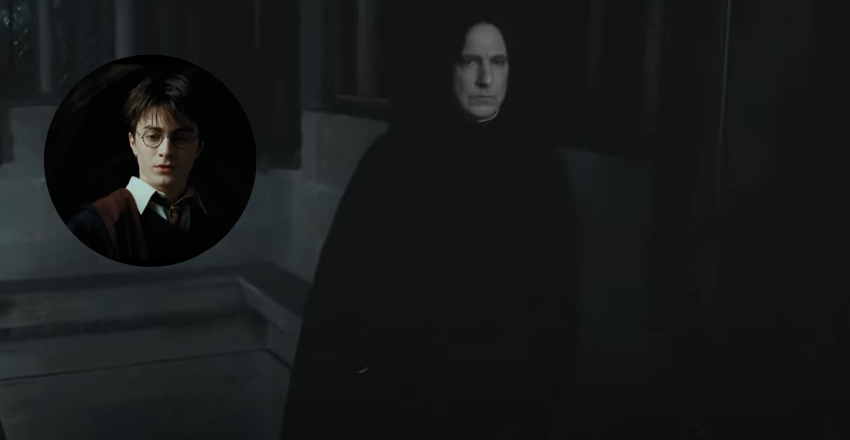James and Lily Potter’s deaths were not the result of Voldemort acting ruthlessly. It was a well-thought-out move motivated by fear, conceit, and a steadfast faith in a prophecy. He wanted to get rid of Harry before he became strong enough to oppose him because he saw him as a direct threat to his authority. On October 31, 1981, that one night in Godric’s Hollow changed the course of the wizarding world.
A child born at the end of July 1980 would have the ability to defeat the Dark Lord, according to a prophecy given by Sybill Trelawney in a dimly lit room at The Hog’s Head Inn. Part of this prophecy was overheard by Severus Snape, who at the time was still a devout Death Eater, and he told Voldemort about it. Voldemort chose Harry Potter as the prophesied enemy instead of Neville Longbottom, who also met the criteria, without fully comprehending what it meant. He made a choice that ultimately led to his demise, one of many times his paranoia proved to be his undoing.
Key Information About the Event
| Attribute | Details |
|---|---|
| Date of Attack | October 31, 1981 |
| Location | Godric’s Hollow |
| Victims | James Potter, Lily Potter |
| Survivor | Harry Potter |
| Attacker | Lord Voldemort |
| Reason for Attack | Prophecy predicting Voldemort’s fall |
| Betrayer | Peter Pettigrew |
Voldemort’s fixation on immortality did not only harm James and Lily. Having resisted him three times prior to that fateful night, they were active members of the Order of the Phoenix. Voldemort was already aware of them because of their resistance, but their son was the one who ultimately brought about their demise. Voldemort thought he could neutralize the prophecy before it could come to pass if he destroyed Harry when he was still a baby.
The first person to pass away was James Potter. His valiant attempt to protect his family was in vain because Voldemort entered the house unarmed. He died quickly, brutally, and unavoidably. But Lily was offered a choice that James was not. Unusually for Voldemort, he offered to spare her life. This was a direct result of Severus Snape’s request rather than an act of goodwill. Since he was a young boy, Snape had pleaded with Voldemort to spare Lily’s life. However, Lily made a decision that changed the course of magical history when she refused to back down and allow Voldemort to take Harry.
Unaware of the magnitude of the magic he was about to use, Voldemort cursed Harry with the Death Curse. Despite his infatuation with magic, Voldemort had never appreciated or comprehended the ancient protective enchantment that Lily’s sacrifice had triggered. The curse rebounded, breaking Voldemort’s physical body and leaving him only a broken soul, rather than killing the child.
The irony of Voldemort’s demise lies in the fact that he unwittingly carried out the prophecy himself. The phrase “the Dark Lord will mark him as his equal” was important. In addition to leaving a visible scar on Harry’s forehead, Voldemort unintentionally implanted a fragment of his soul into him during the attack, turning Harry into a Horcrux. This was the start of their relationship, which would later enable Harry to see into Voldemort’s head and foretell his actions years later.
Voldemort, however, wasn’t operating alone. Betrayal was the only thing that allowed the Potters to be killed that night. The family had been concealed in Godric’s Hollow by the Fidelius Charm, a potent protective spell. But its power rested on trust, and the Potters had put theirs in their alleged friend, Peter Pettigrew. Weak and susceptible to manipulation, Pettigrew had already sworn allegiance to Voldemort. He sealed their doom when he disclosed where they were.
Harry’s godfather and best friend, Sirius Black, was held responsible for the Potters’ demise. In a well-planned ruse, Pettigrew killed twelve Muggles by feigning his own murder and then set Sirius up. Another terrible result of that one night was Sirius’s unjust imprisonment in Azkaban.
There was a pattern to Voldemort’s incapacity to identify his own blind spots. He dismissed self-sacrifice, love, and loyalty as weaknesses and undervalued them. However, these were the same forces that would eventually defeat him. He had more than just a wand when Harry confronted him in the Forbidden Forest years later. He carried his parents’ legacy, the love that had kept him safe, and a profound comprehension of Voldemort’s weaknesses.
The story’s most glaring irony may be that Voldemort’s greatest fear was death. Desperate to avoid death, he split his soul and spent his life making Horcruxes. However, he was vanquished by a mother’s love—something he never comprehended—rather than by strong spells or physical force. His downfall was caused by the very thing he disregarded as unimportant.
Voldemort was solely responsible for his own demise. He might not have made Harry his worst enemy if he had not fulfilled the prophecy. History might have turned out differently if he had gone with Neville Longbottom instead. Lily might not have used the protective magic that left him helpless if he hadn’t given her the option to live.
Despite being tragic, James and Lily Potter’s deaths served as the impetus for Voldemort’s downfall. The boy he had attempted to destroy, their son, became the very thing that destroyed him. Voldemort made sure that his own worst nightmare would come true by pursuing immortality relentlessly.



